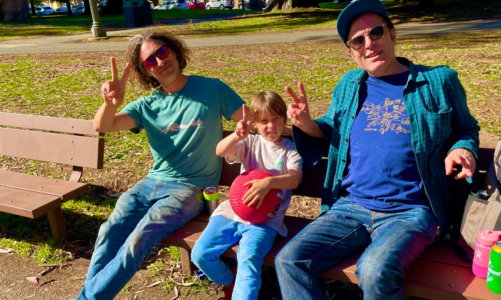HSV: I’ve got Bill Graham on the cover as you know. It would be great to talk in real time about, it’s the holiday edition, it’s the Winter edition with Bill in front of Winterland. That was a very important venue in the City. I thought for the holidays it would be cool if you could just give me a few words about Bill Graham, and also because it’s the holidays, something about PEAC Roundtable and why it’s so important.
DD: Bill Graham was the patron saint of our Haight Ashbury Free Clinic. When I first started the clinic we had no government funding. It was all volunteer. We were seeing about 200 to 300 patients a day, and he organized benefits because he saw the people that were coming to our clinic for medical help were the same ones that were going to the Fillmore.
We had some of the most incredible benefits at Winterland with the Grateful Dead, Jefferson Airplane, Carlos Santana — it was just incredible! The initial ones were all at the Fillmore but then what happened was as the crowds got bigger, Jerry Pompeii who was Bill’s assistant, saw that there was a geometric ??? increase in adverse drug reactions, bad trips. As a result of all this we named one of our buildings the Bill Graham Center for Health and Recovery.
When I started the clinic, I was very involved in psychedelic drug research and the PEAC Roundtable is the third psychedelic revolution, which is the use of psychedelics for therapeutic purposes, for PTSD, depression, substance abuse disorders, and we’re starting psychedelics and recovery.
HSV: That PEAC Roundtable with Haight Ashbury Psychedelic Center is on January 5, 2024. This is the holiday edition, what would you like to say to the Haight community let alone communities everywhere in the world for the holiday season?
DD: Recovery works. There are very serious addiction problems that are going on. We have to focus on individuals as human beings. Health care is a right not a privilege, and that’s the whole purpose of what we’re doing.
HSV: It’s the warm and fuzzies for the holidays and I really want to know the importance of what you’re doing and how Bill Graham cared about people and his whole background coming from Nazi Germany, and how important community is and all of that.
DD: Oh yeah. Bill had a rough exterior but a heart of gold. He always rooted for the underdog.
HSV: The meeting on January 5 is your effort to heal people. Bill healed people through music and community, and your efforts are more healing through recovery, right?
DD: Yes. Psychedelics and recovery to overcome trauma and to seek spiritual solutions because recovery is focused on spiritual solutions. Those that benefit from psychedelics at the higher dosages, it’s the spiritual experience that transcends their trauma. And all the evidence at UCSF for example is that that’s the dosage that rewires the brains. So it’s absolutely fascinating science.
HSV: That’s beautiful. Perfect. And how has music influenced your life, Dr. Dave? Has it helped you, Dr. Dave, rock and roll?
DD: Well, our clinic was built on rock and roll, and in the early days, the psychedelic sound like the Grateful Dead and taking LSD and having a different vision of what music was was very influential. But it’s also interesting because at Golden Gate Park all these musicians would play, everybody would take LSD, they would dance, there was no beginning, no end — it produced a whole new genre of music insight. The light shows at the Fillmore were in fact simulated LSD experiences.
I was a laboratory scientist that lived in the Haight and I observed the impact of psychedelics on music and culture. It was absolutely fascinating.




